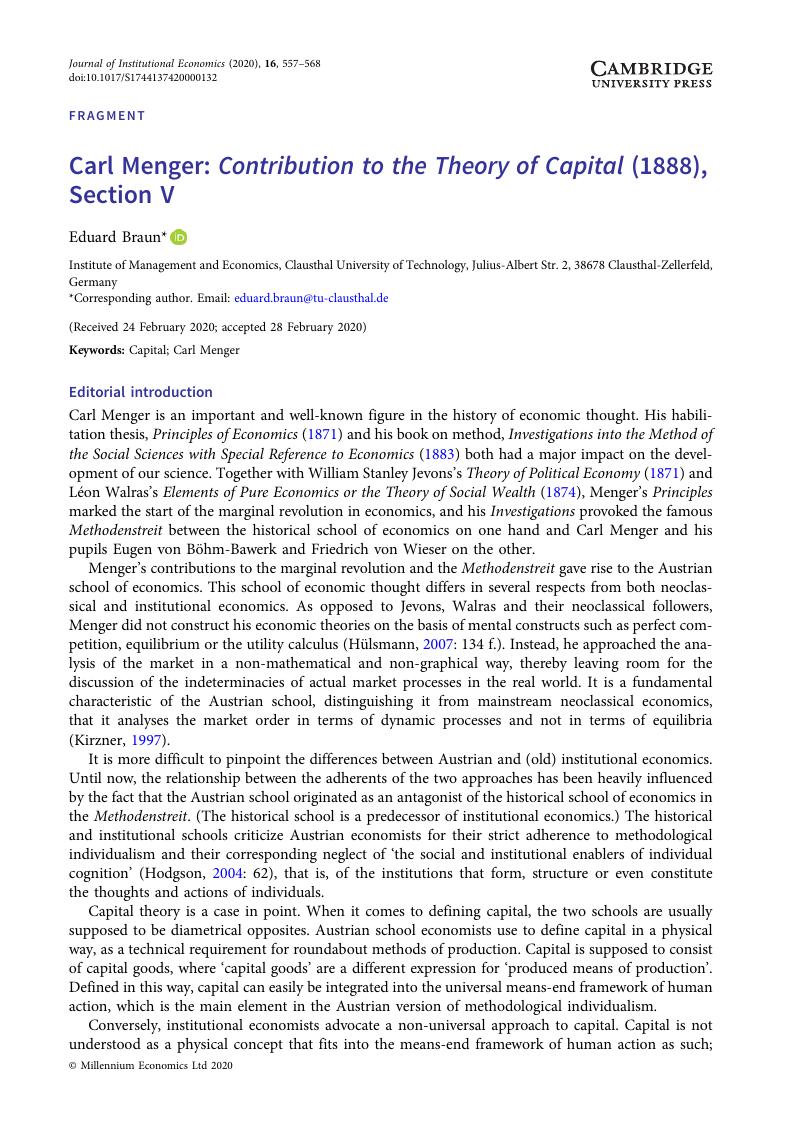Crossref Citations
This article has been cited by the following publications. This list is generated based on data provided by Crossref.
Stamate-Ștefan, Andreas
Apăvăloaei, Matei-Alexandru
Roşca, Vlad I.
Iacob, Mihaela
and
Jora, Octavian-Dragomir
2021.
“The Price of Everything and the Value of Nothing!?” – What Cultural Capitalism Is and What It Cannot Be Accused of Being.
Proceedings of the International Conference on Business Excellence,
Vol. 15,
Issue. 1,
p.
861.
Hodgson, Geoffrey M.
2021.
Financial institutions and the British Industrial Revolution: did financial underdevelopment hold back growth?.
Journal of Institutional Economics,
Vol. 17,
Issue. 3,
p.
429.
Eduard Braun, Eduard Braun
2021.
The Importance of a Realistic Theory of Capital for Institutional Reform – The Case of Financial Accounting.
New Perspectives on Political Economy,
Vol. 17,
Issue. 1-2,
p.
4.
Deakin, Simon
Gindis, David
and
Hodgson, Geoffrey M.
2021.
What is a firm? A reply to Jean-Philippe Robé.
Journal of Institutional Economics,
Vol. 17,
Issue. 5,
p.
861.
Storr, Virgil Henry
Haeffele, Stefanie
Lofthouse, Jordan K.
and
Grube, Laura E.
2021.
Essential or not? Knowledge problems and COVID‐19 stay‐at‐home orders.
Southern Economic Journal,
Vol. 87,
Issue. 4,
p.
1229.
Hodgson, Geoffrey M.
2021.
On the limits of markets.
Journal of Institutional Economics,
Vol. 17,
Issue. 1,
p.
153.
Braun, Eduard
2023.
The German historical school on monetary calculation and the feasibility of socialism.
Journal of Institutional Economics,
Vol. 19,
Issue. 5,
p.
579.
Braun, Eduard
2024.
Capital is not a factor of production but organizes the allocation and distribution of resources in capitalism.
The Review of Austrian Economics,
Braun, Eduard
2024.
De-homogenizing the Austrian Theory of Capital.
New Perspectives on Political Economy,
Vol. 20,
Issue. 1-2,
p.
43.
Scheall, Scott
2024.
The Palgrave Handbook of Philosophy and Money.
p.
511.



